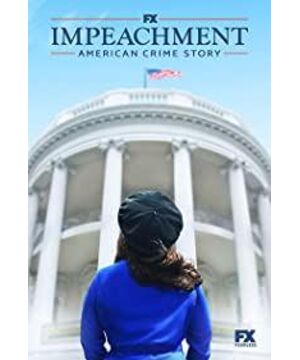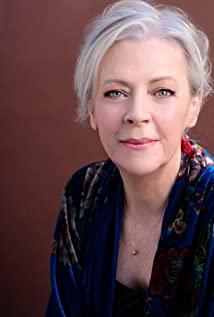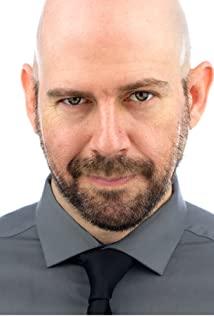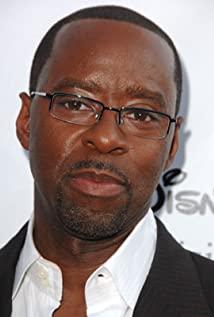The cover at the beginning of each episode reads: "American Crime Story" - The Simpson Prosecution, not the title we usually come across on the Internet: Simpson's Wife Murder Case.
When I was a child, I read articles about Simpson's wife murder case, but I was confused and couldn't find too many details of the case on the Internet. The original intention of my watching American Crime Story was to find the truth, with Simpson's subjective judgment of killing his wife, to see the evidence, witnesses, and the case handling process of the Los Angeles Police Department in this century's grand trial.
However, the deep meaning of this title about the prosecution case rather than the wife murder case is to let people escape from the strong will to judge the murderer and focus on the chilling impact of the trial itself. The significance of the Great Trial of the Century is not to argue whether Simpson is the murderer of the double corpse case, but to lie in the struggle between the system and citizens in the process of judicial trials in the United States, and in the importance of the Anglo-American legal system on procedural law.
The ending of the Simpson indictment is well known: Fantasy Lawyers played the racial card and won not guilty for OJ.
Many articles on the Internet analyze that "in the face of so much hard evidence, the jury's decision to OJ is not guilty" is because: the Los Angeles Police Department, in the process of collecting evidence and other major mistakes in the process of handling the case, led to evidence There are suspicions of contamination, failure, and even framing by extremely racist police officers.
But what we need to pay more attention to is the racial card played by lawyer Cochran, why it was so powerful in the United States in 1995, and finally "distorted the American judicial system."
Since the 1960s and 1970s, the civil rights movement in the United States has been surging, and the suppressed desire for a hundred years has erupted. It is also a criminal case that has received much attention from the society. It was also in the 1990s of the Simpson prosecution. The Los Angeles Police Department, which was also handling the case, Ronnie King, a black youth who was beaten by three police officers, did not receive fair judicial treatment— — Three white police officers, two acquitted and one lightly sentenced. This is a big case, and a small one, like in the show, lawyer Cochran drives slowly in a luxury car in a high-end white neighborhood, and is forced to stop by a police officer, just because he is black. Such distinctions exist in every part of American life.
The emotional foreshadowing of the Ronnie King case broke out in the Simpson case. The proportion of black and white on the jury was equal, but except for the black jurors who were already dissatisfied, even most of the white jurors were attracted and convinced by the speech-like and moving defense of the Dream Lawyers. , led by flamboyant and well-paused speeches, they believed that Simpson's arrest was due to the long-standing racial issue in the LAPD, and they even believed that Officer Mark Forman was a black policeman who framed Simpson.
In the end, the prosecutor was exhausted and was also dark-skinned. As the co-prosecutor, Chris was constantly attacked by Cochran's lawyers. The lawyers made the black group unanimously misunderstand that Chris was a black-skinned and white-hearted Oreo. Let the public ignore the "black" Simpson who is eager to get rid of black people after going out and plays golf with white people every day.
In the final episode of the film, the two also dark-skinned Chris and Cochran said: This is a war, a revenge. This is no longer a criminal case against Simpson alone, it has become a revenge for all African-American citizens for their long-standing injustice by whites. "People will just see you twisting our system so easily, it's not a civil rights milestone. This country will keep arresting us, beating us, killing us. You didn't change the situation for black people. Because you're just a rich man Well-known lawyer living in the upscale neighborhood of Brentwood."
The editing technique of this drama is also very superb, and the split-screen technique was adopted in the final trial: on the screen of the court trial scene, the dark-skinned Simpson smiled smugly, and the white-skinned family members of the victims lost their voices in pain; Outside the screen at the trial scene, the black skin cheered and celebrated, and the white skin looked sad.
Simpson's case, from one man murder, to black and white, who is to blame. Simpson was acquitted despite a fair trial by a Japanese-American judge, white-dominated mainstream media coverage, and a live broadcast that was transparent and open throughout. In fact, the reason is precisely because of the excessive interference of the media in the judicial process. White-dominated mainstream media reports consistently report and interpret from the perspective of Simpson's murder of his wife, but this is tantamount to arousing more dissatisfaction among blacks. The broadcast of the trial scene allowed the defense lawyers to seize more opportunities to attack details unrelated to the case: the hairstyle of the white prosecutor, the position of the black prosecutor, the racial discrimination of Officer Foreman, and so on. The excessive exposure of the media has also led to the invalidation of witness testimony, the major changes in jury members (with the purpose of publishing books for profit), and the terrible situation that the court has to make small concessions once the defense lawyers are pressured by public opinion.
Finally, back to my thoughts. Although in our country, there is no question of who is cleaner, black or white, but over the past few years, media interference in justice has not been uncommon. In the past, people were unable to speak or speak for a long time, and when people spoke freely, some people would mix in and call a deer a horse. Anyone on Weibo's hot search list can send a lawyer's letter warning, but anyone can be slandered.
From Wu Moufan to Zhang Mouhan, I gradually can't tell where is fairness and justice? Does it exist in the people's shouts, on the keyboards, in the excitement, or in the "cold" evidence?
Sometimes media intervention can promote justice, but once the group's emotions are manipulated by a group, it is a distortion of justice.
Before Simpson, the innocent were guilty of his skin. And Simp is the guilty man who is innocent because of his skin. Why, because of skin color, because of the long-standing racial issues, because of the confrontation and struggle between black and white.
Cochran once quoted Martin Luther King before the court: Injustice anywhere is a threat to justice everywhere.
I believe that one day in the future, we will have broad access to the truth and to speak out, and no one will be able to manipulate the media and public opinion, and turn the truth that people are seeking into their own weapons of attack. We will find truth, fairness and justice through ourselves.
View more about American Crime Story reviews











